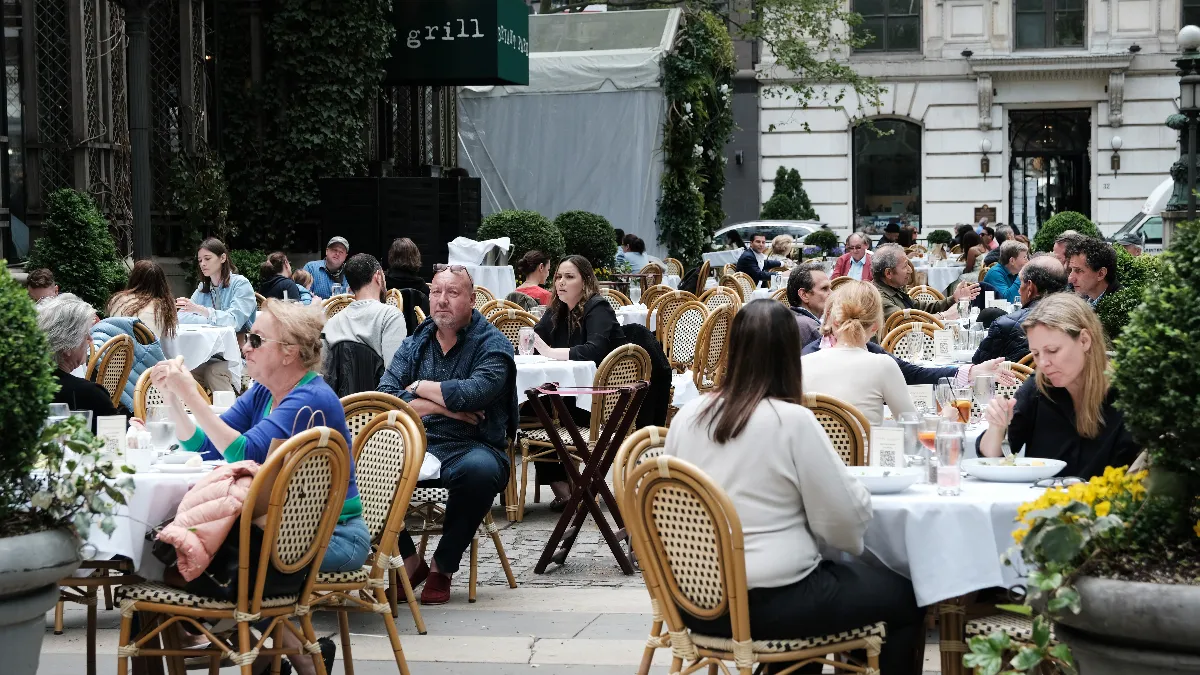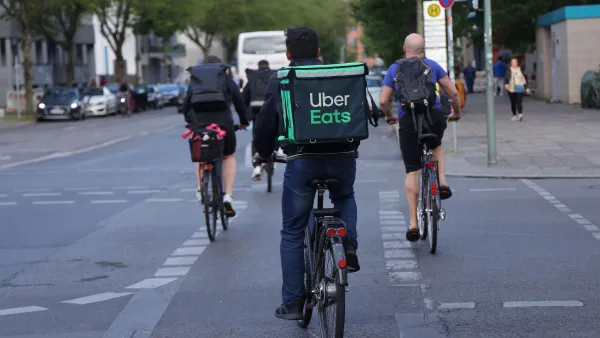Dive Brief:
- Grubhub and the National LGBT Chamber of Commerce will provide grants ranging from $5,000 to $100,000 to restaurants with LGBT operators throughout the fall, according to a press release.
- Applications must be submitted by Oct. 12. NGLCC said 30% of grants will be given to restaurants owned by people of color and transgender and gender non-conforming people.
- The grant partnership is the latest in a string of restaurant grant and loan programs created by third-party delivery companies, which aim to support struggling operators in the absence of federal aid.
Dive Insight:
According to the application portal, to receive funds applicants must "be an LGBTQ+-owned or LGBTQ+ ally-owned restaurant, bar or café that serves food." Applicants must also demonstrate loss of business due to COVID-19 and provide proof the establishment business is an LGBT owned or allied business.
"These small business owners have been among hardest hit by Covid impact with loss of jobs and income over the past two years," NGLCC wrote in a press release. The organization estimates there are 1.4 million LGBTQ-owned businesses in the United States, but did not estimate how many of these businesses are restaurants.
Grubhub announced its $2 million grant program almost four months after announcing an identically sized partnership with the Restaurant Strong Fund. That round of grants was intended to help independent restaurants reopen, according to a press release.
In February, competitor DoorDash created the Main Street Strong Accelerator, which granted $20,000, and an eight-week training program to 100 restaurateurs. The program had a particular emphasis on grants for women, immigrants and BIPOC restaurant operators.
In the hopes of staving off a collapse of the independent restaurant market, all of the major third-party delivery apps offered some form of financial relief to restaurants during the pandemic. Uber Eats provided $25 million in free marketing credits to restaurants last summer. Last fall, DoorDash gave $2 million in grants to small restaurants to help them winterize their spaces. Grubhub spent $100 million to reduce fees, increase advertising and provide personal protective equipment to restaurants in 2020.
This support from delivery aggregators comes in the absence of federal aid tailored to the restaurant industry. Earlier this year, Congress allocated $28.6 billion for the Restaurant Revitalization Fund, which provided grants for restaurants. But applications for those grants closed just three weeks after the program opened due to insufficient funds. Like many of the grants given by major delivery firms, the RRF initially focused on disbursing grants to restaurants owned by women, minorities and veterans.
Grant programs and other restaurant initiatives launched by aggregators could also be a bid to improve their brand halos. Political pressure against delivery firms is growing as major cities pass temporary and permanent commission fee caps and enact changes to labor and wage laws. Some of these changes were vehemently resisted by delivery companies, while others, like New York City's recent requirement that restaurants let delivery workers use their bathrooms, received support from aggregators.
Since the beginning of the pandemic, Grubhub, DoorDash and Uber Eats have also deployed tiered pricing structures for partner restaurants, which could make them more accessible to restaurants wary of high commission fees.














